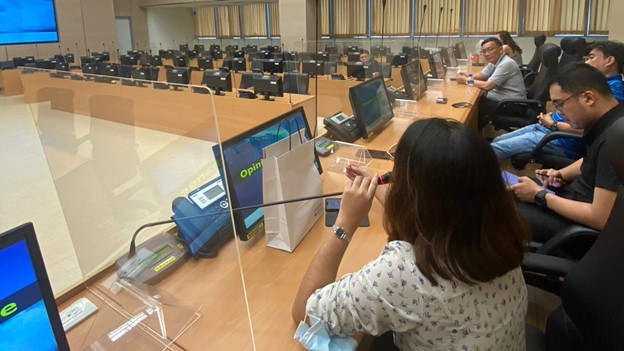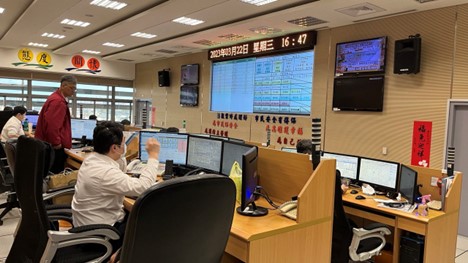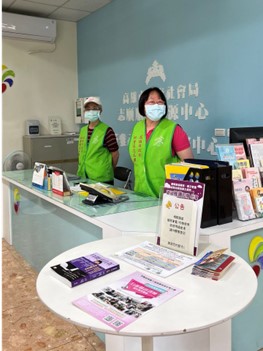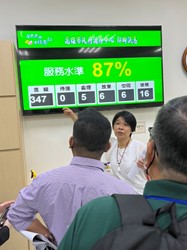by: Arge Louise Joy S. Esquivel

This post is part two of a series written about Paglinang: Kaohsiung City Immersion for Navigating and Framing Philippines-Taiwan Bayanihan Advantages. This educational tour, held on 21-27 March 2023, was conducted to deepen the experiential and contextual learning of UP technical staff by immersing them in the practices, culture, and institutions of Kaohsiung City. This activity aimed to strengthen the collaboration between the Philippines and Taiwan, in fulfillment of UNSDG 17: Partnership for the Goals.
Read part one here: https://resilience.up.edu.ph/navigating-and-framing-philippines-taiwan-bayanihan-in-kaohsiung-city-part-1-competent-governance-breeds-empowered-citizens/
Competent governance breeds empowered citizens
a. Science-based leadership
During the first half of the educational tour, the University of the Philippines (UP) Center for Leadership, Citizenship and Democracy (CLCD) and UP resilience Institute delegates visited the Kaohsiung City Emergency Operation Center (EOC) and their Emergency and Rescue Command Center to learn about the city’s various disaster risk reduction and management practices. The center features nine floors, combining the fire prevention, emergency medical service, and disaster management divisions. The EOC also collaborates the National University of Kaohsiung to further its understanding about hazards present in the community. The strength of the center is urgency. Their centralized EOC enables them to dispatch relevant units to priority areas quickly.


b. Equity-centric leadership
Citizen participation is vital in cultivating a sense of commitment in the community. The Taiwanese Government implemented the Volunteer Service Act to integrate human resources and to effectively utilize civil forces that are willing to participate in volunteer service, which the Kaohsiung City Government Social Affairs Bureau is tasked to manage and engage. This initiative has resulted in registered volunteers comprising an approximate of 4.20% of the population, with more than 4 million hours of volunteer work rendered, making it one of the top performing cities.
As a populous country with compassionate citizens, the Philippines is yet to maximize the potential of its human resources for volunteerism. While goodwill is one of the positive Filipino traits, Filipinos often do not have the drive to initiate interventions that can improve their communities because this is seen a function of the local government, and because perceived direct benefits seem intangible. I think the Philippine government can localize the Volunteerism policy of Taiwan to address the cited reasons. If made into law, a volunteerism policy can legitimize efforts initiated by citizens through volunteer certification. The reported volunteer work may also be used as basis for receiving government incentives on top of the assistance that is already provided to them.

The Kaohsiung City Government Research, Development and Evaluation Commission, on the other hand, ensures the participation of the citizens in various aspects of decision-making in city governance. One of its initiatives is the 1999 Citizen Hotline which aims to resolve complaints and reports. They believe that citizens will be more involved in the community if they have a voice in community affairs. The 1999 Citizen Hotline enables the local population to air out their grievances and help the local government in elevating their level of service. This initiative is only effective if it is trusted by the citizens. The Commission believes that they can maintain public trust by handling the calls with compassion and urgency. Upon receipt, grievances and complaints are relayed to relevant bureaus which must resolve the issues within 48 hours. One of the notable practices in the unit is hiring physically challenged people and designing a working environment that is suitable for their needs.

Stay tuned for part three.
